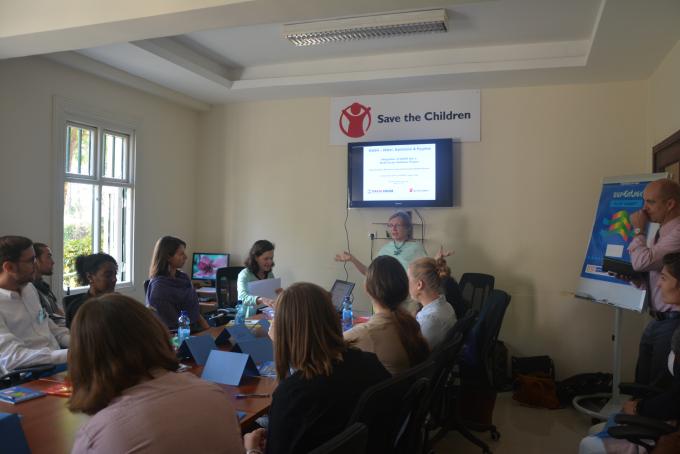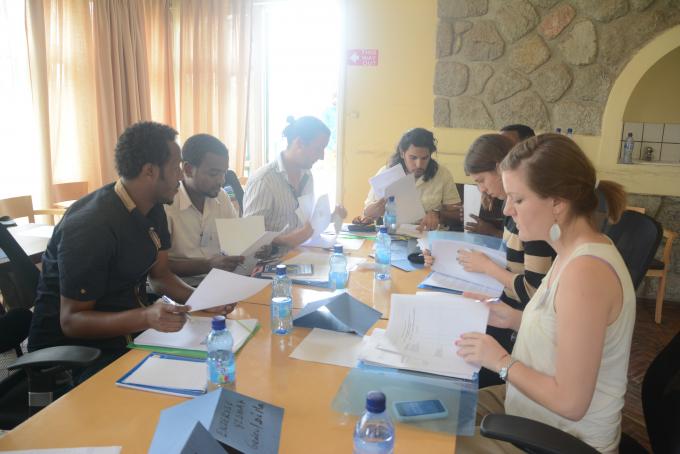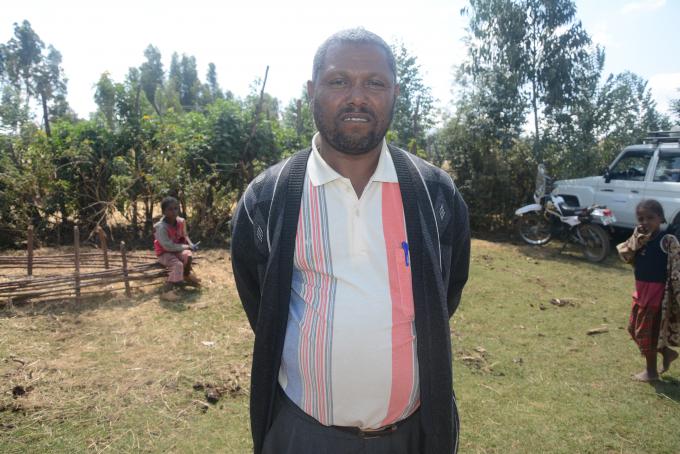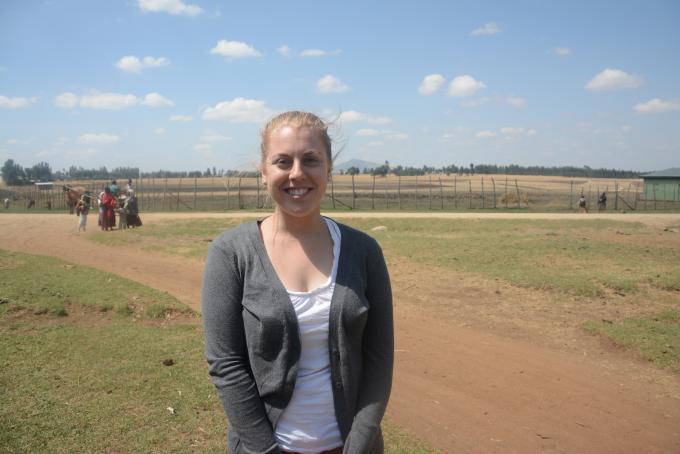ENGINE Feed the Future Highlight
As part of its efforts towards the integration of WASH into a multi-sector nutrition project, USAID/ENGINE, led by Save the Children, organized a three-day workshop for 12 ENGINE zonal coordinators and 12 Peace Corps volunteers through its subprime The Manoff Group. The study is designed to understand current household WASH practices and to then identify small doable actions to reduce diarrhea prevalence among children under-2 and enhance their ability to maintain essential nutrients to reduce stunting. The data collection which will use rapid qualitative research methods to understand household WASH practices will begin on April 1st and gather information on the WASH practices of the targeted households both within and outside of ENGINE beneficiary areas.
The proceedings began with USAID nutrition coordinator Mary Harvey’s welcome address that gave an overview of the national status of WASH and Ethiopia’s position in comparison with other countries in Africa. Erika Lutz, ENGINE’s deputy chief of party, presented to the group the research objectives, some background information on ENGINE and what they can expect from the workshop.
The Manoff Group’s consultant Dr. Mayling Simpson who led the training stressed the importance of the research on improving WASH services for target areas, “Open defecation is the single most dangerous activity to human health besides chemical warfare.”
The three-day training enabled the volunteers and coordinators to be a part of the design of the questionnaires for the qualitative research, as well as a field test on the third day of training. The field test was carried out in the ENGINE’s beneficiary zone of Holeta (East Oromia), and gave the researchers a glimpse of what the data collection will be like, with twelve households being visited by each pair for about an hour. The trainees asked questions regarding the households’ WASH practices and behaviors. Many commented later that this exercise further enriched their knowledge of the approach and form for the data collection.
The data collection was successfully completed during the first week of April. The volunteers visited 24 households within the 12 woredas from four regions: Amhara, SNNP, Oromia and Tigray where PCVs live and work, with each pair of researchers were assigned two households each.
 Ethiopia
Ethiopia 


